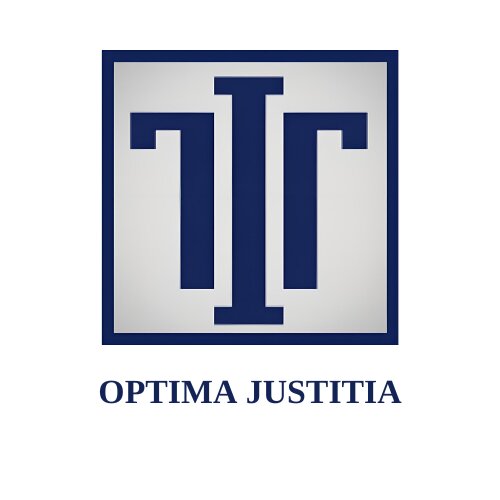Best Fintech Lawyers in Greece
Share your needs with us, get contacted by law firms.
Free. Takes 2 min.
Or refine your search by selecting a city:
List of the best lawyers in Greece
About Fintech Law in Greece
Fintech, a blend of "financial" and "technology," refers to innovative technologies aimed at enhancing and automating financial services. In Greece, the Fintech landscape is rapidly evolving, driven by the need for more efficient financial services and the growth of digital transactions. The Greek government and regulatory bodies are keenly aware of the potential impacts of Fintech on the economy, leading to a dynamic regulatory environment. While Greece offers significant opportunities for Fintech companies, navigating the legal landscape can be complex due to the interplay between local and EU regulations.
Why You May Need a Lawyer
There are several scenarios in which individuals or businesses may require legal assistance in the Fintech sector:
- Regulatory Compliance: Understanding and complying with the myriad of regulations governing financial services, especially those specific to digital transactions and data protection, is crucial.
- Licensing Requirements: Determining the necessity of obtaining specific licenses to operate legally within Greece.
- Intellectual Property: Protecting innovative technologies, software, or business processes from infringement.
- Contract Drafting and Negotiation: Creating clear and enforceable contracts with partners, clients, or employees.
- Privacy and Data Protection: Ensuring compliance with GDPR and other local data protection laws when handling customer data.
- Dispute Resolution: Managing and resolving disputes that may arise in the course of business.
Local Laws Overview
The Greek legal framework governing Fintech is influenced heavily by EU regulations and directives. Key aspects include:
- Payment Services Directive (PSD2): Enhances consumer protection, promotes innovation, and improves security of payment services within the EU.
- General Data Protection Regulation (GDPR): Lays down stringent requirements for data protection and privacy applicable to all businesses processing personal data.
- Anti-Money Laundering (AML) Regulations: These are aimed at detecting and preventing money laundering and terrorist financing activities.
- Electronic Money Institution (EMI) Regulations: Governing the issuance of electronic money and scope of responsibilities for EMIs.
- Financial Markets and Services Regulation: Covers various types of financial transactions and related activities to ensure fair practices and transparency.
Frequently Asked Questions
What is fintech?
Fintech refers to technologies that aim to improve and automate the delivery and use of financial services, enabling companies and consumers to operate more efficiently.
Is Greece a good place to start a fintech business?
Yes, Greece has a growing fintech ecosystem with governmental support initiatives, but it is important to navigate the complex legal and regulatory landscape effectively.
Do I need a license to operate a fintech company in Greece?
Yes, depending on the type of services you offer, you may require licenses such as those for electronic payments or as a financial intermediary.
How does GDPR affect fintech businesses in Greece?
GDPR places strict compliance requirements on data processing and privacy, particularly affecting fintech businesses that handle personal customer data.
What regulatory body oversees fintech in Greece?
The Bank of Greece and the Hellenic Capital Market Commission are primary regulatory bodies overseeing financial and fintech-related activities.
Can fintech companies operate in the cryptocurrency space in Greece?
Yes, but they must comply with local and EU regulations regarding digital assets and AML requirements.
Are there any fintech-specific incentives provided by the Greek government?
Greece offers various investment incentives and support frameworks for technology-driven businesses, including fintech.
What are the key compliance risks for fintech businesses in Greece?
Key risks involve regulatory compliance, data protection, financial security, and intellectual property rights.
How can I ensure my fintech business complies with local and EU laws?
Engaging a knowledgeable legal advisor can provide guidance on navigating the complex regulatory landscape effectively.
What should be included in fintech company contracts in Greece?
Essential elements include confidentiality clauses, data protection policies, service level agreements, and compliance commitments.
Additional Resources
Here are some useful resources for anyone seeking insights or assistance with Fintech laws in Greece:
- Hellenic Bank Association
- Bank of Greece
- Hellenic Capital Market Commission
- Greek Fintech Hub
- European Union’s Fintech Action Plan
Next Steps
If you need legal assistance in the Fintech sector in Greece, it is advisable to:
- Consult with a Fintech Lawyer: Seek a lawyer who specializes in financial and technological law in Greece.
- Research & Learn: Utilize available resources to understand the basics of fintech law and regulations in Greece.
- Identify Legal Needs: Clearly define your legal questions or issues to streamline consultation with legal professionals.
- Reach Out to Professional Networks: Engage with associations or networks specific to fintech in Greece for recommendations and insights.
Lawzana helps you find the best lawyers and law firms in Greece through a curated and pre-screened list of qualified legal professionals. Our platform offers rankings and detailed profiles of attorneys and law firms, allowing you to compare based on practice areas, including Fintech, experience, and client feedback.
Each profile includes a description of the firm's areas of practice, client reviews, team members and partners, year of establishment, spoken languages, office locations, contact information, social media presence, and any published articles or resources. Most firms on our platform speak English and are experienced in both local and international legal matters.
Get a quote from top-rated law firms in Greece — quickly, securely, and without unnecessary hassle.
Disclaimer:
The information provided on this page is for general informational purposes only and does not constitute legal advice. While we strive to ensure the accuracy and relevance of the content, legal information may change over time, and interpretations of the law can vary. You should always consult with a qualified legal professional for advice specific to your situation.
We disclaim all liability for actions taken or not taken based on the content of this page. If you believe any information is incorrect or outdated, please contact us, and we will review and update it where appropriate.
Browse fintech law firms by city in Greece
Refine your search by selecting a city.












